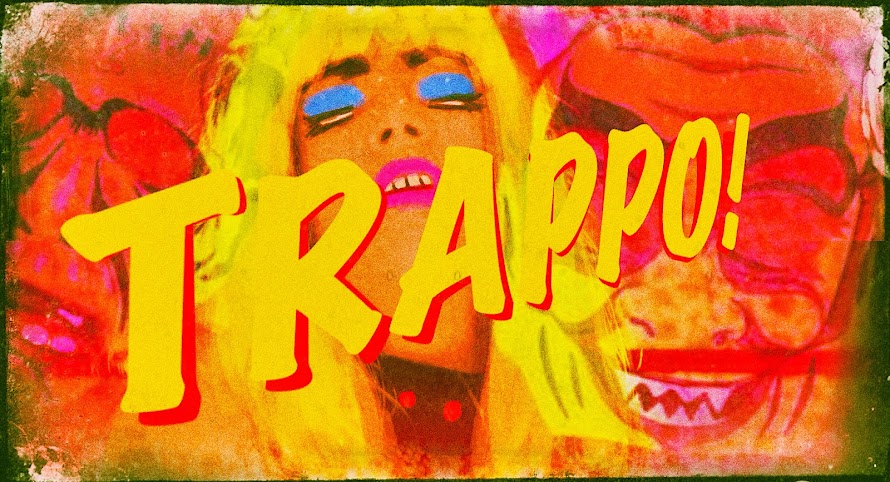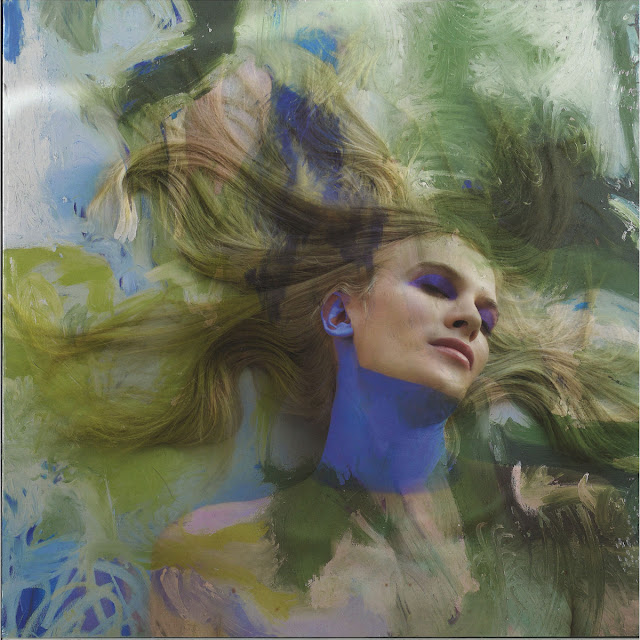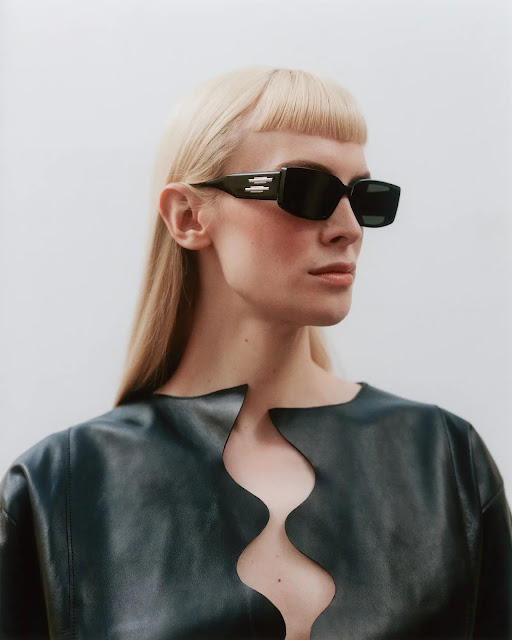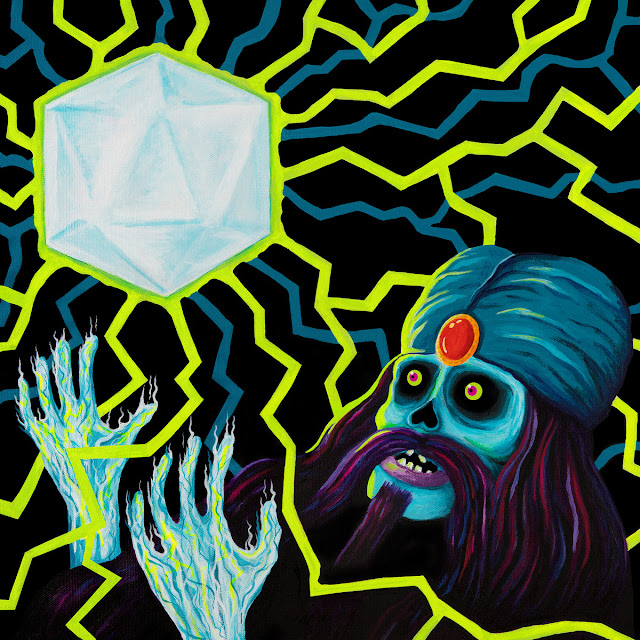FOUNTAIN (& DELTA) by Lyra Pramuk
Lyra Pramuk was born in the small town of Hollidaysburg, Pennsylvania to a Presbyterian mother and a Catholic father, and while growing up, she was made to attend services for each denomination every Sunday, where she took an early interest in music through the church choir. She later attended the Eastman School of Music, where she continued to hone her skills through endless practice in multiple languages, outwardly presenting as an average middle-American teenager, a literal "choir boy" as far as anybody could tell. But Lyra's online persona was free to explore the boundaries of artistic creativity, music theory, gender fluidity and sexual identity, completely unbound by societal norms or expectations. Eventually, these explorations could no longer be contained within the online realm, so Lyra boldly merged this virtual aspect with her physical self, relocating to Berlin after college and coming out as trans shortly thereafter.
Distancing herself from the religions of her parents, Lyra expanded her horizons to embrace scientific theory and studies of paganism, abandoning simple monotheistic mythologies in favor of a broader, deeper form of spirituality. This included DJ Eris Drew’s theory of Motherbeat, or the ancient and universal healing power embedded within musical forms. Drew refers to this power as a “positive goddess force” that lies in the foundation of music itself and can be channeled to bring people together and introduce a positive energy into the world. She views DJs as conduits for the transformative power of music, ecstatic healers that are essentially modern practitioners of ancient spiritual traditions. Her discovery of this power in 1994 changed the course of her life, and has since become her guiding light. Drew and Pramuk have become friends in recent years, and both see their music as a way to encourage healing in others and a means to establish deeper bonds within us all.
While exploring and re-defining her own physical and spiritual identity, Lyra also began to re-define the course of her own musical journey. Inspired by such legends as Laurie Anderson, Meredith Monk and Björk, she felt too constrained by the limits of traditional musical career paths and pushed herself in a more overtly experimental direction with the idea of creating entire soundscapes using only her voice and a computer.
2020’s FOUNTAIN is the direct conclusion of that experimentation, capturing her voice through a series of improvised recordings, new and old, and, in a digital space, breaking down these recordings into a series of fragments, manipulating, processing, deforming and layering the results to create lush and unique musical worlds. Within these worlds, Lyra’s voice becomes a full and diverse orchestra of strange and alluring virtual instruments that come together to create a series of beautiful and haunting textures and melodies.
This is Musique concrète, with the end result being something entirely new, unexpected and intimately tied to the artist’s emotions, beliefs and past experiences, evoking her innermost Self. This is a radical act of self-realization. FOUNTAIN’s extra-linguistic concept abandons traditional structure to create a new kind of post-human aural aesthetic. It is alien and beautiful, a challenging yet immensely rewarding experience.
"It's a really vulnerable thing to put any music out. But this music is super vulnerable. Everything is me.”
On an episode of New Models Public's Greenroom podcast, Lyra introduced the concept of the Body as not simply a physical shell but a multi-media, multi-faceted organism that exists online and within the minds of everybody the individual encounters, not only “the self” we perceive. One individual becomes a multitude as their words and actions are interpreted by others. The version of the individual carried in the mind of another may be drastically different from the version of that same individual carried in any other mind. Each of these variants is another aspect of the greater Body, which takes on different, stranger forms when the online component is taken into account. A form of fascinating evolution takes place when the Body grows through online avatars or goes viral through social media.
As an artist, one’s Body becomes something unique and cherished by every fan who consumes their art. The artist forges intimate connections with total strangers through the art they create, and the Body grows ever more complex. We as individuals are only one small facet of this greater Body, and this is all represented in the construction of Lyra’s music, as she uses purely vocal recordings to capture one manifestation of the Body and merges this primordial being with technology to virtually deconstruct and rebuild it in various fascinating new forms. Elements of Gregorian chanting, Tuvan throat singing and religious choirs recur throughout the album, re-contextualized as manifestations of astonishing and ethereal beauty. A liquid spirituality flows throughout FOUNTAIN, and this imbues the work with a sense of awe and wonder, a blurred vision of celestial promise.
Music is its own language and FOUNTAIN is a fascinating new dialect.
"There were some years when I felt like I wanted or needed to use my voice in a hyper-feminine way. But it's interesting to put the full range of my voice everywhere and treat it as a non-gendered or non-binary instrument."
Opening track "Witness" begins with ambient drone. A single voice rises up in a beautiful, soaring aria. The melody sets in, and the voice oscillates as it gains power. There is grace here. A masculine choir of voices joins the feminine melody. A congregation gathered to praise a new dawn. The opening vocalizations of "Xeno" are muted, followed by a sharp wail reminiscent of a newborn crying as all sounds become clear. Birth. A chorus of droning voices, then a swarm, like buzzing insects. A rhythmic pulse begins to drown out all other noise. The pulse brings with it a deep, throaty chant, ancient and otherworldly. Awe combined with anxiety. The pulse lingers, an echo. Then it’s gone. "Mirror" is drifting on a languid sea, a meditative spiritual ecstasy.
"Cradle" features Pramuk’s voice re-imagined as a cello made of flesh and binary. The voice carries melody, rises and falls, slipping in and out organically from the shimmering liquid drone. An invocation. A lullaby, perhaps. Tenderness and warmth. The feminine voice returns and the two rise together with the warmth of light pouring in through stained glass windows. Love. Forgiveness. Absolution. The opening of "New Moon" evokes the synth styling of Vangelis, as a distorted voice seems to float in on the breeze. A gentle visitation offering reassurance and understanding. A warm embrace. The new moon represents renewal, the beginning of a new cycle. And this culmination feels like the beginning of a strange and beautiful journey of spiritual transcendence. A transmutation of the mundane into the extraordinary.
There is a notion that music itself is, in essence, a process of movement, the singing voice becoming a body in motion. We can capture the voice digitally and “see” its body as a waveform. We can watch the waveform move through an oscilloscope. It is given a definitive shape in this way, becoming another aspect of the greater Body. Visualizing the voice, providing it with shape and form, is a new and largely unexplored act of intimacy. What does this new “body” represent? Are they the words of a lover? A contented sigh? A keening wail of mourning? To be able to look at these voices, to scrutinize their curves in motion, we are witnessing brand-new facets of the Body conjured into existence in real time.
Lyra’s techniques in creating FOUNTAIN are destroying these aspects of the Body and re-forming them within a new paradigm. She is using technology to tear these avatars of herself apart and build them up again in exotic new forms. This is a form of re-birth, and it is also a metaphor for Lyra’s continuing journey as a trans woman.
"I think technology is a really generative, incredible space and I think of my voice as an instrument and I think of my body as a technology that's connected to other technologies."
Without using specific words or structured language, Lyra Pramuk's music emerges as something universal that is not tethered to any specific region or culture or time, unusual yet deeply familiar. Without words, FOUNTAIN speaks directly to our inner selves, our primal being. The musical compositions evoke deep emotional responses, and their larger meanings are left to individual interpretation.
FOUNTAIN at its core represents the Self as a multitude. It is possibility and evolution, reflection and imagination. FOUNTAIN encourages the listener to become an active participant in the world it creates within the mind. The music can take you to places beyond your imagination, it can show you pieces of yourself you may have forgotten, and it can create an intimate connection between you and its creator, unbound by the constraints of language.
Philosopher Roland Barthes, in his essay "The Grain Of The Voice" defined the concepts of the pheno-song and the geno-song, with the pheno-song being the structure of the language being sung, the intellectual aspect, and the geno-song being the underlying melody, the sounds enunciated by the voice, the emotional aspect that exceeds the constraints of structure. Thusly, the grain is the body of the voice, and the geno-song is what ultimately affects the listener, culminating in a state of bliss (Barthes explicitly used the term jouissance, which is most often applied in reference to orgasm).
FOUNTAIN is the realization of Barthes’ concept of the geno-song, unbound by the structure of language. The music she has created communicates with the listener on an instinctive level. It is at turns a hypnotic, surreal, deeply spiritual, meditative and overwhelmingly beautiful aesthetic object. The music flows like water through your mind, the myriad voices within coming together in discordant harmony, an unearthly choir exulting in one voice the birth of a new facet of the Divine.
FOUNTAIN is a staggering accomplishment, and a true work of art from a supremely gifted individual.
2022's DELTA provides exciting new opportunities to explore Lyra Pramuk’s masterpiece through a series of re-imaginings of the worlds born in FOUNTAIN. Nothing so simple as a “remix album”, DELTA is FOUNTAIN re-born as a sprawling new being, the rapturous amalgamation of Lyra’s spectacular vocal stylings and the passionate work of a series of hand-picked creative artists spread across four continents. Every artist was given total creative freedom over Pramuk's work. They could choose to remix a single track or take stems from the entire album. The only true limits were their imaginations.
The birth of DELTA was a truly courageous act for the artist, allowing others to take the core of her art and use it to create fascinating new works. If Lyra’s voice is another aspect of her Body, given form in a digital space, then sharing this facet of herself in its rawest state with these other artists is a brave and intimate thing, almost spiritual in a way as she invites these individuals to transform her work through their own creative processes, destroying and re-building her Body in their own image. This is, at its core, an act of reproduction, new forms of the Body born as a synthesis of two creators becoming one in this new medium of expression.
Caterina Barbieri's "Tendril (Germinative Rework)" is a stunning reinvention with frenetic synthesizer accompaniment completely transforming the mood and form of the original piece. Echoing and reverberating squeals within a cavernous space give way to echoes of cellular division. The beautiful feminine voice fades in and out like a dream as digital instrumentation takes over, an otherworldly night sky filled with glimmering stars. Pure science fiction. Ben Frost's "Cradle (Patience Rework) strongly re-imagines the original composition as a garbled transmission broadcast across the vastness of space and time. Beautiful, sacred. then gone, lost in the void.
Eris Drew's "Sugarcube Revelations" begins with an intrusion. Audio taken from a clip of a girl dropping acid and describing her experiences. Sounds of modernity, people talking, car doors closing, all jarring and unwelcome. Then the hypnotic drone begins, the modern world fades away once more, and the listener is cocooned in comforting darkness. Adrift in formlessness, safe from cares and worries. Then the outside world intrudes again, signals get crossed and the trance is broken as Drew's "Everything Is Beautiful & Alive" seamlessly begins. with throbbing techno beats, all sweat and mindless motion. A different kind of trance sets in, synthetic in origin, but no less powerful or valid.
Gabber Modus Operandi's "Kaca Bulan Baru" is a self-contained epic saga, sweeping in scope, dizzying and exhilarating as it unfolds over its four minutes. All static, howling and delirious moaning, it leaves the impression of a violent ritual, the vision of a haunting new world that lingers within the mind. And Tigapaw's "New Moon (In Pisces Rework)" is an explosive climax, a propulsive and alluring trance rhapsody.
Going even further in this direction of collaboration, Lyra has joined forces with Spitfire Audio to develop Siren Songs, a free plug-in for their LABS series made from playable samples from Fountain. By removing barriers to access, the listener can craft their own responses to the album's themes, or use its unique language to express their innermost feelings in their own intimate works. Thus, the Body continues to evolve in new and unexpected ways.
DELTA is an undertaking that adds stunning depth and texture to an already fully realized vision, creating not only a worthy companion to FOUNTAIN, but also a breathtaking new work of art in its own right. Lyra Pramuk understands the true power of what music can be. She has stripped away all barriers to its transcendent power with her inspiring work thus far. And at only age 30, it's truly exciting to imagine what's next from this astonishing talent.










I've never even heard of Lyra Pramuk before this. I had no idea this kind of music was even being made. I mean I can guess that it won't have much crossover appeal, which is understandable because how many people are going to keep this stuff in heavy rotation? That sucks, because pushing yourself to try new things keeps the life from getting boring, but the mainstream is never going to accept music like this. It's going to remain a niche thing, but the people who do find it and accept it can be blown away by it, and who knows what else they might be open to next time? I'll listen to whatever Lyra Pramuk puts out next, that's for sure. It may not work for everybody, but it works for me. Very well written review.
ReplyDeleteI get the intent behind this music, I think, but it doesn't really make a lot of sense to me. I hate to be that stereotypical guy who "doesn't get it", but most of Fountain just sounds like white noise. The artist had a lot of time on their hands to just keep screwing with recordings of their voice to make a record, but I'm not sure exactly how that's supposed to be a measure of talent. Maybe you just need a better hobby, I don't know. And all the spiritual wankery on display here is just eye-rolling. The Mother Beat? Ecstatic healers? Give me a break. Getting fucked up at a rave is not a religious experience. If the "true power of music" is pretension, then acheivement unlocked, I guess.
ReplyDeleteLyra Pramuk's "Fountain" is some of the most engaging and emotionally stimulating music I've heard in a long time. It's so challenging and beautiful and it gets under my skin in the best way. I'd never heard of her before reading this review, and I've now bought both "Fountain" and "Delta" which is amazing in its own unique way. And reading her story, how she's broken away from a repressive lifestyle to become the person and the artist she was truly meant to be, really resonates with me. I've never met Lyra Pramuk, but I feel like I know her very well. I've now begun learning more about Eris Drew and the "motherbeat" and it's all fascinating. I'm in love with "Fountain" and I can't thank you enough for introducing me to one of my new favorite artists.
ReplyDeleteThe music itself seems a little interesting, at least the making of it, but what is with all the pseudo-philosophical gobbledygook? Motherbeat? Pheno-song? The Body? The germ of the voice? Give me a break with all that crap. Who has their head wedged that firmly up their own ass that they actually believe this crap? This is a scam, just some New age mysticism bullshit that's fleecing the impressionable youth and turning them into soft-headed idiots who think their music is going to save the world from all it's problems. All you have to do is believe and go to a big party and dance all night and we're gonna fix everything with the power of positivity! I don't have time for this shit because I live in the real world and have bills to pay. It must be nice to have the luxury of living with your empty head floating in the fucking clouds all day, but it's not a luxury most can afford. Bjork made a better record using only her voice years ago, and she spared the world a heaping hill of steaming spiritual shit in the process.
ReplyDeleteSo is this stuff in your canon or not? There needs to be a list here on the blog so people know what’s in the canon. You let people vote on a couple albums, but we don’t know if they’re in the canon because those results aren’t being shared. What gives? We listen to your show and we don’t know what’s going on. Is the B-52s episode coming? Will you be writing any more text reviews? More polls? Fill us in, please.
ReplyDeleteI like thought-provoking art, and I like thought-provoking art criticism. I heard Fountain back when it released in the early stages of this cursed pandemic. I was isolating in my small apartment for weeks, only venturing out to buy groceries early in the morning, avoiding all physical human contact. I had this music in heavy rotation for a few months, and it helped keep me sane, I guess. I didn’t know too much about its construction, although I told myself I’d look it up eventually.
ReplyDeleteAlmost two years later, eventually just slipped my mind, and Delta is released. I buy the new music and start actually trying to learn more about this stuff. I find this blog post through Instagram and I read through it a few times. I’m not completely sold on all the dots you’re trying to connect here, but I’m genuinely fascinated by all of these concepts you’re weaving together. You may be onto something, or you may be out of your head. Either way, it’s a much more interesting read than anything else I’ve read regarding Lyra Pramuk out there, and I’m loving the places thinking about all of this stuff is taking me.
Thanks for pouring your thoughts out here, I truly appreciate it. Lyra Pramuk’s ground-breaking work deserves more adventurous critics like you attempting to tune into its particular wavelength in the media. Music can definitely take us on a journey, and good writing about good music can make that journey more enjoyable.
Fountain is a transcendent experience. Thank you for introducing me to this monumental work of art. I would like to return the favor and introduce you to Origin Of The Alimonies from Liturgy, an avant-garde metal opera that combines grand philosophy and spiritual yearning to become something greater than the sum of its parts. The work of Hunter Ravenna Hunt-Hendrix has been struggling with matters of identity and the infinite from the beginning, but this particular work of art is in many ways the culmination of that journey. Of course I say that, but the journey is ongoing, so who knows where it will end? Ask big questions. Ponder the mystery. Embrace eternity. Thank you.
ReplyDelete